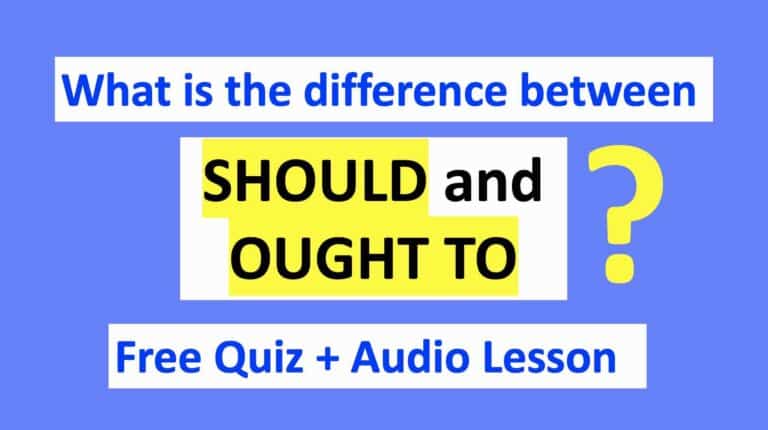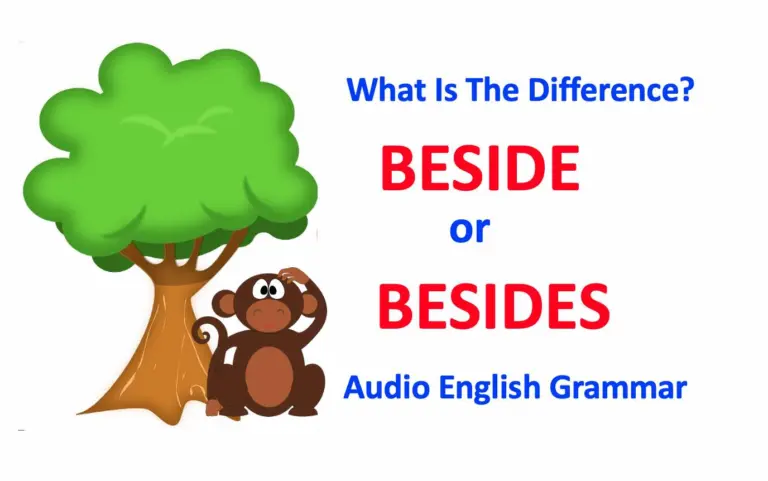How To Use The PRESENT SIMPLE Tense In English With ALL Its Meanings
How many ways can I use the Present Simple tense?
Hello I’m Jane at DailyStep English and in this lesson I’m going to give you ALL the ways to use the Simple Present tense in English. Please make sure you take this lesson even if you are at advanced level.
There is a FREE QUIZ at the bottom of this page to test your understanding.
I’ll teach you how to use ALL English verb tenses and modals over the coming weeks and months so if you are new to DailyStep English, please sign up here.
So let’s begin with how to use the Present Simple:
The Present Simple (also called The Simple Present)
by Jane Lawson at DailyStep.com
If you want to learn how to form the Simple Present, please click here.
When do we use the Present Simple tense in English?
This verb tense is the first one that beginners learn in English. But actually the Present Simple has some advanced uses as well. Please check that you know all of these ways to use this important English verb tense.
1. We use the Present Simple when we are talking about facts that are always true.
Examples:
The sun rises in the East and sets in the West.
Where does the sun rise and where does it set?
Does the sun rise in the West? No, it doesn’t. It rises in the East.
Water freezes at zero degrees centigrade (0o C) and boils at one hundred degrees centigrade (100o C).
What temperature does water freeze at? It freezes at 0o C
Water boils at 100o C, doesn’t it? Yes, it does.
Bread is made from flour, water and yeast.
What is bread made from?
Bread isn’t made from apples and coffee, is it? Not, it isn’t.
Bread is made from flour, water and yeast, isn’t it? Yes it is.
2. We use the Simple Present to talk about permanent or long term situations.
Examples:
I am an English teacher.
Are you a French teacher? No, I’m not.
Where do you live? I live in the UK.
You’re an English teacher, aren’t you? Yes, I am.
He lives in London.
Where does he live?
He doesn’t live in New York, does he? No, he doesn’t.
We keep the cups on the shelf in the kitchen.
Where do you keep the cups?
The cups are kept on the shelf in the kitchen.
Where are the cups kept?
Are the cups kept in the drawer? No, they are kept on the shelf.
3. We use the Present Simple to talk about regular habits.
Examples:
He gets up at 7 o’clock every morning.
What time does he get up?
He feeds the dog every evening.
The dog is fed every evening.
Is the dog fed in the morning? No, it isn’t.
4. We use the Simple Present with adverbs of frequency with a present meaning (for example: always / often / sometimes / rarely / never)
Examples:
They never travel on the train.
Do they ever travel on the train? No, they never do.
How often do you visit your parents?
I always visit my parents at weekends.
What time is dinner generally served?
Dinner is usually served sometime after 8 pm.
Does she still go swimming every day?
No, she hardly ever goes swimming any more.
5. We use the Present Simple tense in Zero Conditional clauses.
Examples:
If/When you heat water to 100o C, it boils.
Unless you keep milk in the refrigerator, it goes bad.
If you don’t keep milk in the refrigerator, it goes bad.
Plants grow better if/when you water them.
Fire burns you if/when you touch it.
To learn more about Zero Conditional Clauses, please click here
The Present Simple tense can also have a future meaning. Let’s take a look at how to use it in this way:
6. We use the Present Simple for future schedules and timetables.
Examples:
The plane leaves at 10 a.m. next Wednesday.
What time does your exam start?
Is the meeting scheduled for the morning or the afternoon?
She doesn’t get here until later tonight.
7. We use the Simple Present tense in time clauses with a future meaning.
Examples:
When I go to Italy next year, I will visit you.
We’ll give her the present after we have dinner.
As soon as we get to the beach, I’m going to have a swim.
What are you planning to say when you speak to him?
8. We use the Present Simple tense with a future meaning in First Conditional clauses.
Examples:
I will not leave unless you tell me the secret.
What will you do if I tell you?
If you help me with my homework, I will cook dinner for you.
What will you cook if I help you with your homework?
To learn more about First Conditional Clauses, please click here
Now, this last meaning is usually taught only at advanced level English:
9. The Present Simple can be used when we are telling a narrative story in the past or present. It makes the story more dramatic. We also use it like this when we are talking about the plot of a film, book or play.
This is called the narrative present.
Examples:
While I was on the train last night, suddenly this man starts shouting and then he tries to steal a woman’s bag. She calls the police. It was awful. (notice how I only use the narrative present for the dramatic parts of the story)
In the book, Harry Potter is a young boy who doesn’t know he has magical powers. Then he is visited by an owl that keeps giving him letters, and he is told that he has a place at a school for wizards. The school is called Hogwarts.
So, now you know ALL the different ways to use the Present Simple tense in English. How many ways are new for you?
Please test your understanding by taking a free quiz here:
If you like this lesson, please share it. Thank you 🙂
If you enjoyed my Audio Blog, please share it. Thank you 🙂
How to speak English fluently and understand fast English
DailyStep English Audio Lessons are designed to help you learn to speak and understand English at the speed that we speak it.
No matter how good your English is, you need to be able to follow a fast conversation in order to participate.
DailyStep English courses are fully accredited and you can get an internationally-recognised certificate for your CV or resume.
How to use your lessons:
How to slow the audio:
How to Start Daily Audio Lessons
✔ Daily Audio Lessons + Premium Audio in my Blog Library
✔ Your lessons never expire – you can take them again any time
✔ Change your level any time
✔ 100% happy or your money back!



